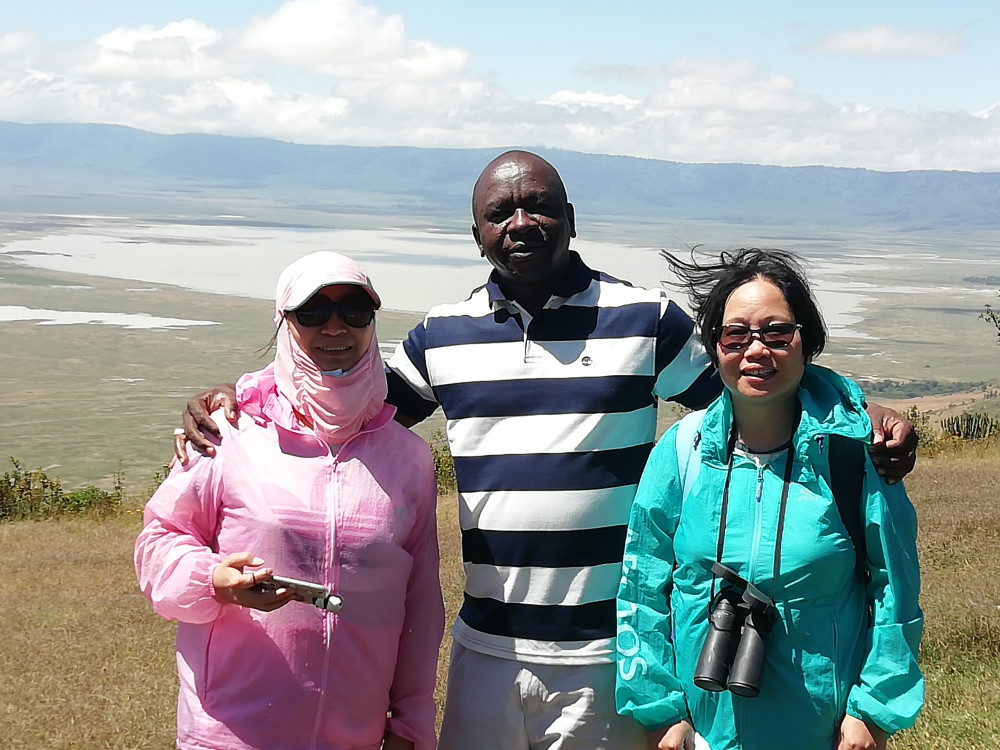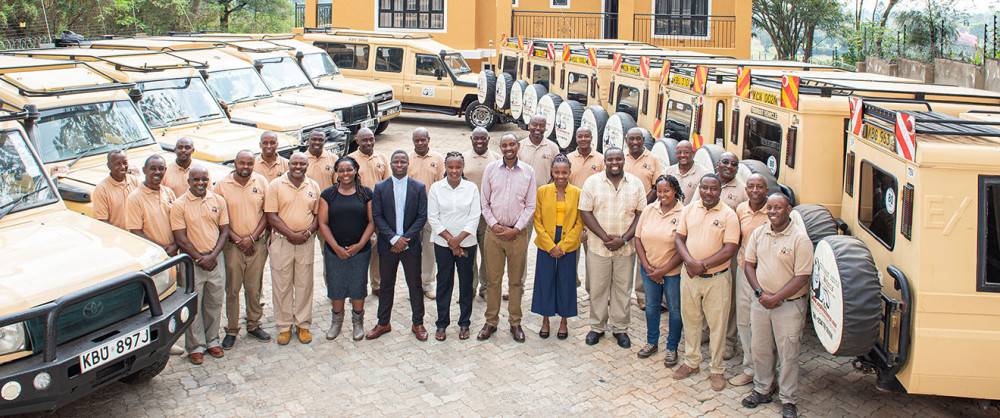Good News For Choosing Best Holiday Destinations In Kenya
Good News For Choosing Best Holiday Destinations In Kenya
Blog Article
What Transportation Arrangements Do I Need To Know When Holidaying In Mombasa, Kenya?
To ensure that your trip to Mombasa in Kenya is relaxing and enjoyable It is essential to be aware of the different choices of transportation that are available. Here are the main choices for transportation:
1. How do I get to Mombasa
Moi International Airport is the main air terminal serving Mombasa. It serves both international and local flights. Mombasa has numerous flights departing from and to major airlines.
By Train by Train Madaraka owned by Kenya Railways offers a modern railway service that is easy to travel between Nairobi Kenya, Nairobi, as well as Mombasa.
By bus: Many bus companies, such as Modern Coast and Coast Bus, offer services between Mombasa and other cities in Kenya.
2. Local Transportation in Mombasa
Taxis and Ride-Hailing services: Taxis are able to be found everywhere. Uber and Bolt provide ride-hailing alternatives in Mombasa.
Tuk-tuks are three-wheeled vehicles that are a very popular and affordable way to move around in the city. They are suitable for shorter distances.
Matatus - These are minibuses for sharing that run on specific routes. They're the most widely used form of transport. It's an economical alternative, but it could be packed.
Boda bodas - Motorbike taxis may be utilized for quick and convenient travel, especially in areas that have a lot of traffic or shorter distances.
3. Car Rentals
Self-Drive Car Rental Services are accessible in the city as well as at the airport. Local and international car rental firms offer a variety of vehicles. Be aware of local driving conditions and traffic laws.
Services for chauffeurs For those who do not want to drive themselves, there are chauffeur-driven rental cars available.
4. Ferry Services
Likoni Ferry - This ferry connects Mombasa's island to the mainland's southern part of the city. It is essential for pedestrians to get to the beach in the south. The cost for vehicles is.
5. Day trips and excursions
Tour Operators: Many tour operators provide organized tours to popular tourist destinations like the Mombasa Marine National Park, Fort Jesus, and nearby beaches such as Diani and Nyali. The tours typically include transportation.
Public Transport: Individual travellers are able to use a matatus combination of taxis and tuktuks to various places of interest.
6. Walking and Cycling
Bicycle Rentals: Some locations, particularly along coastal beaches, offer bikes for rent to explore the area.
Walking is possible around Mombasa. Especially in the Old Town or along the beach.
7. Tips for travelers
Safety: Always choose reputable taxi services and avoid public transportation in the late hours of the late at night. Make sure you take care of your possessions.
Negotiation: If you are using taxis or tuk-tuks, you must negotiate the price before beginning your journey. Meters are seldom used.
Traffic: Expect lots of traffic, particularly around Likoni Ferry or central business district.
You can relax and hassle-free vacation in Mombasa by understanding the available transport options. See the most popular island snorkeling in mombasa for blog recommendations including kenya holiday packages, kenya safari packages, kenya tours, kenya safari and beach, tours safari africa, tour agents in kenya, safari trips in africa, tours and travel company in kenya, kenya safari tours, african safari tours and more.
What Weather Considerations Should I Be Aware Of While Visiting Mombasa In Kenya?
Knowing the local weather patterns will allow you to prepare your bags in a way that will maximize your holiday. Here are the top factors to consider when planning your trip.
1. Climate Overview
Mombasa is a city that is tropical with warm temperatures throughout the year. The temperature ranges from 24 degrees to 32degC.
2. Seasons
Hot and humid season (November to April) The time of year when, temperatures are high and humidity is high. It is the most popular tourist season.
Long Rains April-June: The rainy seasons is characterized by heavy rains and thunderstorms. The roads are often muddy, making them difficult to drive on. The low season is here.
The cooler time of year (June-October) is ideal to travel during, as temperatures are lower and humidity is less. It is a pleasant weather, perfect for outdoor pursuits.
Short Rains (October through November) Shorter rain showers, with less intensity occur during this time. The rains are usually short, but are they are followed by sun.
3. Packing Tips
Lightweight Clothing - Pack clothing that's breathable and lightweight like linen or cotton to keep cool during the summer months when it's humid.
Rain Gear: Take an umbrella, a raincoat and waterproof shoes in the rainy seasons.
Sun Protection: A sunscreen with a high-SPF broad-brimmed cap, sunglasses, light clothing, and covering your skin with light clothing will protect against strong sunlight.
Swimwear - Don't forget to bring your swimwear when you go to the beach or hotel pools.
4. Weather-specific activity
Beach Time - The best time to go to the beach during cooler temperatures (June to October) is when the ocean is calm and the weather good.
The crystal clear, calm waters from November to March is ideal for snorkeling diving, snorkeling and other water sports.
Wildlife viewing The cooler season (June to October) is a great time to go on wildlife tours and safaris, since the weather is more bearable.
5. Health-related Considerations
Hydration is essential during this humid and hot weather. Drink plenty of water, particularly if you're outdoors.
Health-related infections involving heat: Be aware that heat exhaustion and heatstroke could be a possibility. Wear loose clothes and make frequent breaks in shade. Avoid vigorous activity during peak heat.
6. Travel Adjustments
Be ready for delays if you intend to travel during the rainy season. There could be road closures and restrictions on outdoor activities.
Rainy season can be the cause of delays on flights. Be aware of your travel plans and make plans for contingencies.
7. Environmental Considerations
Natural Hazards: Be aware of the risk of flooding in heavy rains. Be aware of the weather conditions. Be sure to adhere to any safety guidelines issued by your local authorities.
Be conscious of tides when making plans for beach activities. They can be drastically different. Consult the local tide schedules when planning activities on the beach and swimming.
It is possible to plan your vacation activities in advance, pack appropriately, and enjoy your time in Mombasa while staying safe by understanding the weather considerations. See the recommended taxi in mombasa for site recommendations including trips to kenya africa, kenya tours, trips to kenya, mombasa packages, mombasa safari packages, african safari africa, trip tour companies, tour company in kenya, kenya holiday packages, travel & tours company and more.
What Environmental Obligations Should I Be Aware Of When On Holiday In Mombasa?
Being responsible for the environment when you go vacationing in Mombasa is vital to safeguard the beauty of the region and its rich biodiversity. Consider these environmental responsibilities:
1. Sustainable Accommodation
Eco-Friendly hotels: Choose accommodation that adheres to sustainable practices. You can look for certifications from Eco-Tourism Kenya as well as other eco-labels.
Take part in the hotel's initiatives to save water. Reuse linens, towels and towels. Also, turn off the air conditioner and lights when they are not in use.
2. Responsible Wildlife Viewing
Respect Wildlife. Do not disturb animals by keeping your space secure and them. Your guide will be able to provide you with a set of guidelines.
Avoid Feeding Wildlife: Feeding animals can disrupt their natural diet.
Leave No Trace. Don't litter wildlife reserves or parks. Bring all trash with you and dispose of it correctly.
3. Plastic Reduction
Avoid plastics with single-use. Bring a reusable shopping bag as well as a water bottle and other utensils.
Help local initiatives. Participate in or help local beach cleanup efforts, and also organizations that are working to cut down on the pollution caused by plastic.
4. Water Conservation
Mombasa is a water-scarce city. Make shorter showers and switch off taps when not being used.
Eco-friendly Products - Choose environmentally friendly and biodegradable toiletries in order to lessen water pollution.
5. Energy Conservation
Reduce energy consumption. Reduce the usage of of air conditioning, and unplug all electronic devices when they are not in use.
Choose hotels and tour operators that make use of renewable energy sources.
6. Sustainable Transportation
Cut down on your carbon footprint by taking public transportation, like buses or matatus, whenever it is possible.
Try using bicycles to cover short distances. Certain areas offer eco-friendly taxis.
7. Helping to support local economies
Buy Local: Help support the local economy by purchasing products and food items from local artisans and vendors.
Fair Trade: Choose products that have been certified as fair trade to ensure that local producers receive a fair compensation.
8. Environmental Education
Learn and share. Learn about local conservation efforts, as well as the environmental issues. Share your information with others to increase awareness.
Respect Local Cultural Practices Learn and be respectful of local customs in the area of environmental conservation.
9. Marine Conservation
Responsible Snorkeling & Diving: Do not touch or step directly onto coral reefs. Use sunscreen that is reef-safe to help ensure the safety of marine life.
Do not dump trash in the sea. Join or help in marine conservation programs.
10. Ethical Souvenirs
Beware of products that contain wildlife: Do NOT buy products made from endangered species such as ivory or tortoiseshell.
Sustainable Materials: Purchase products made of recycled or sustainable materials.
11. Participate in Conservation Activities
Volunteering: Take part in local conservation initiatives or community-based tourism initiatives.
Support local non-governmental organizations. Contribute money or support conservation organizations and NGOs in your area to safeguard the environment.
12. Responsible Travel Practices
Travel in small intimate groups to reduce the environmental impact.
Eco-Tours Pick tour operators with sustainable policies and a dedication to sustainability.
Make sure these environmental obligations are in the forefront of your thoughts to ensure the protection of Mombasa's precious resources. Follow the best Kenya safaris for site examples including kenya safari beach, kenya safari holiday, kenya safari tours, mombasa tours, tours & safaris, kenya tours and safaris, kenya tour operator, kenya africa travel, kenya safari beach, trips to kenya safari and more.